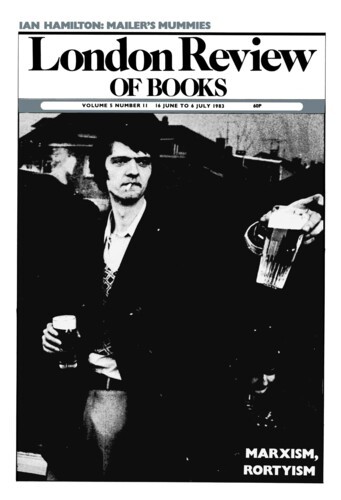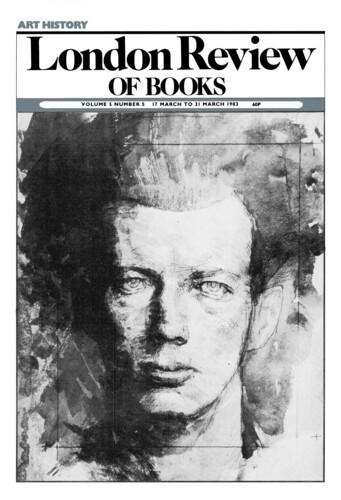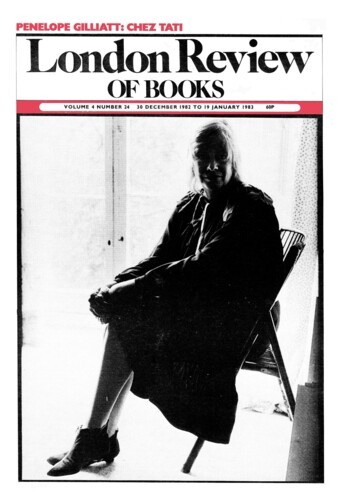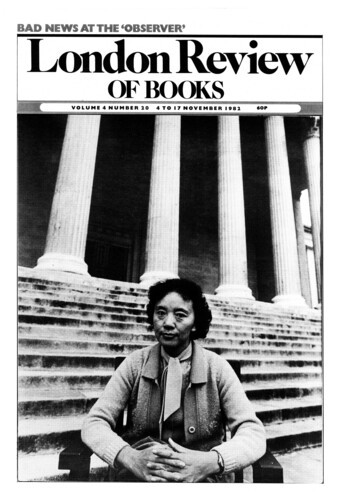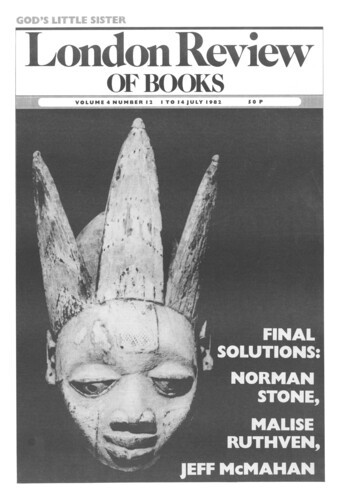Incompetents
Stephen Bann, 16 June 1983
The less there is to see, the more there is to say. Such might be the motto of the Beckett enthusiast. An ingenious recent article by James Hansford devotes almost twenty pages to a story whose original manuscript consists of a bare page of typescript, But the apparent-neglect of due critical economy is easily explained by the character of Beckett’s corpus of writings. To borrow the term which Micher Butor coined for Balzac’s Comédie Humaine, these writings form a ‘mobile romanesque’. Each new work offers a new vantage-point on what we sense to be the same fictional material. A repeated phrase will not only play its intrinsic structural role in the unfolding of the narrative, but will mobilise a whole series of supplementary murmurs from the vast echo chamber of Beckett’s preceding work. And as the new pieces of writing become slighter and slighter – judged by the crude criterion of length – so the challenge to the attentive reader is maximised. Jean-Michel Rey claims to see the germ of Ill seen ill said, Beckett’s last brief novel, in a fragmentary passage from How it is. The earlier work establishes a particular cadence, which at first passes almost undetected in the rhythmic, elliptical patterning of Beckett’s narrative. The title of the new work singles out that lapidary cadence, and it becomes the ground bass for a further, even more elliptical elaboration of Beckett’s recurring themes.
